Position: Home> Media Center > Events
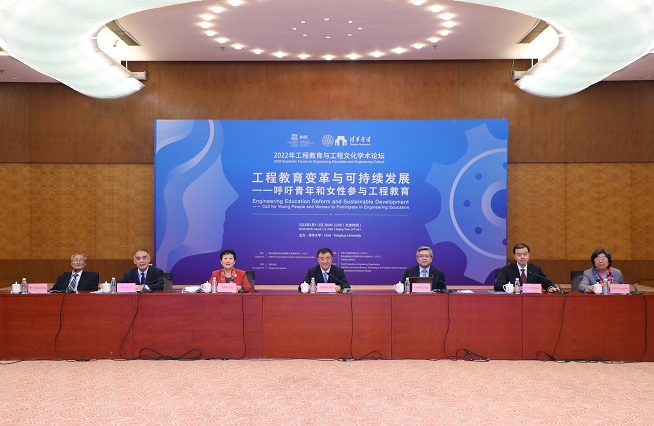
The 2022 Academic Forum on Engineering Education and Engineering Culture was hosted by Tsinghua University on March 1-2, under the theme “Engineering Education Reform and Sustainable Development—Call for Young People and Women to Participate in Engineering Education.”
The forum held to mark the third World Engineering Day was organized by the UNESCO International Center for Engineering Education (ICEE), and co-organized by Tsinghua Symposium, with support from the World Federation of Engineering Organizations, the UNESCO International Science, Technology and Innovative Center for South-South Cooperation, and the Chinese Women’s Research Society.
The particular emphasis of the forum on increasing women’s participation in engineering education couldn’t have come at a better time as it fits well with the theme of this year’s International Women’s Day “Gender equality today for a sustainable tomorrow.”
Yang Bin, Vice President and Provost of Tsinghua University, who is also the Executive Director of the ICEE, delivered opening remarks at the forum.
He said that Tsinghua University hoped to leverage the platform of the ICEE to share China’s best practices in engineering education with countries around the world, jointly promote global engineering education and call for more young people and women to participate in engineering education.
“We managed to put in place a complete engineering education system that suits the realities in China. Remarkable achievements have since been made. The Chinese government has been a champion of gender equality and equal opportunities to create a better policy environment for women to unleash their full potential and play their due part in society,” he said.
He noted in his speech that engineering education undertakes the mission of producing highly qualified engineers, and that numerous highly skilled and professional engineers and technologists have entered the workforce across the globe thanks to the advances in engineering education programs. He, however, mentioned that, although women engineers and technologists represented a vital part of the community, a lack of highly qualified professionals and the prevalent glass ceiling still pose great challenges.
He pointed out that in recent years, Tsinghua University has invested more in engineering education, established the Engineering Doctoral Program for innovative leaders, and strengthened international exchanges and cooperation.
He also informed the forum that Tsinghua held the Global Forum of University Presidents 2021 and issued the GFUP Tsinghua Consensus. Likewise, on World Engineering Day last year, the ICEE and UNESCO jointly released the Engineering for Sustainable Development report. The report was jointly supported by Tsinghua University and the Chinese Academy of Engineering. Audrey Azoulay, Director-General of UNESCO, praised it as an important milestone in UNESCO standards-setting work.
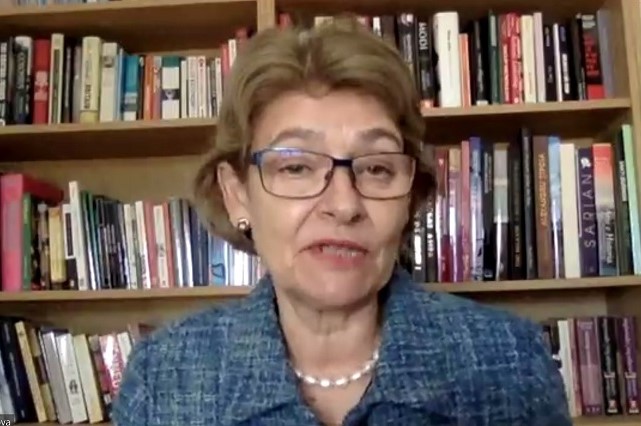
Irina Bokova, former Director-General of UNESCO, noted in her speech that engineering education as well as a call for young people and women to participate in engineering education are essential to achieving the 2030 Sustainable Development Goals.
She emphasized that engineering was the engine that drives the great transformation of China which amazed the world. There could hardly be a place better than Tsinghua University to celebrate the power of engineering. Moreover, the ICEE is a highly effective organization as evidenced by its continuous efforts to deepen cooperation among international organizations amidst the COVID-19 pandemic.
She also said that engineering education should go beyond the traditional boundaries and take an inter-disciplinary approach. Participation of young people and women is vital to engineering as their bright minds prove to be invaluable assets, and this is also consistent with the guiding principles of the Engineering for Sustainable Development report.
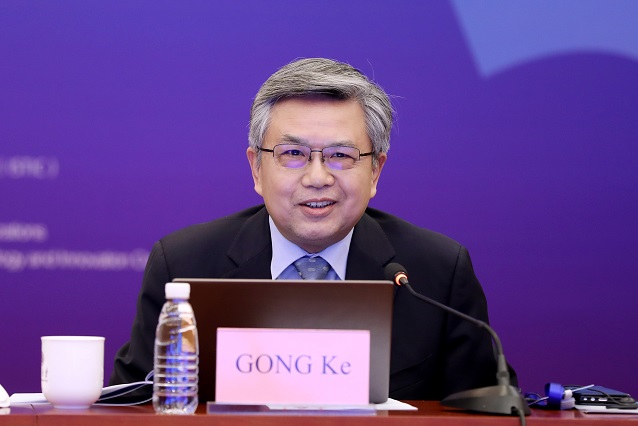
In his speech, Gong Ke, President of the World Federation of Engineering Organizations (WFEO), said that the WFEO attaches great importance to the role of women in sustainable development and focuses on the well-being of humankind.
He said that the WFEO hoped to deepen cooperation with the ICEE to jointly promote the progress of engineering education. He pointed out that the focus on sustainable development, integration into the digital economy, a cross-cultural and inter-disciplinary approach, and teaching students about professional ethics are crucial in engineering education.

Lee Yee Cheong, former Director of the UNESCO International Science, Technology and Innovation Center for South-South Cooperation (ISTIC), said that UN members should make efforts to achieve SDG 1: No Poverty. China has been a pioneer in poverty alleviation through building a moderately prosperous society and achieving progress in infrastructure construction. It can be said from China’s experience in promoting engineering development that engineering technologies lay the groundwork for poverty alleviation.
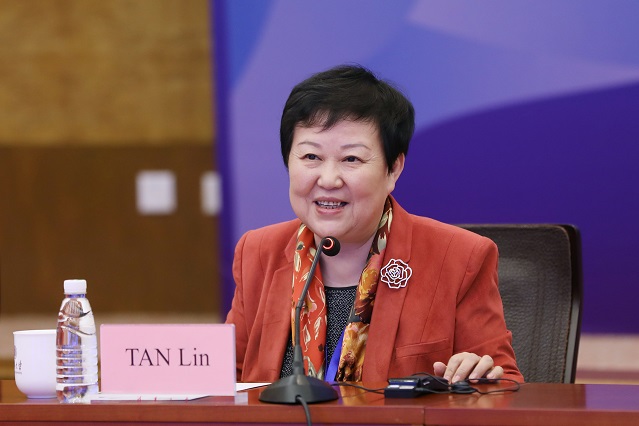
Tan Lin, Vice President of the Chinese Women’s Research Society and former Vice President of the All-China Women’s Federation, highlighted the significance of gender equality in engineering education. She said prioritizing gender equality helps achieve UN SDGs, better implement the basic national policy, and encourage more young women to receive engineering education and even pursue their careers in this field.
Xiang Botao, Deputy Secretary of the CPC Tsinghua University Committee and Vice Chairman of Tsinghua Symposium, moderated the opening ceremony of the forum.
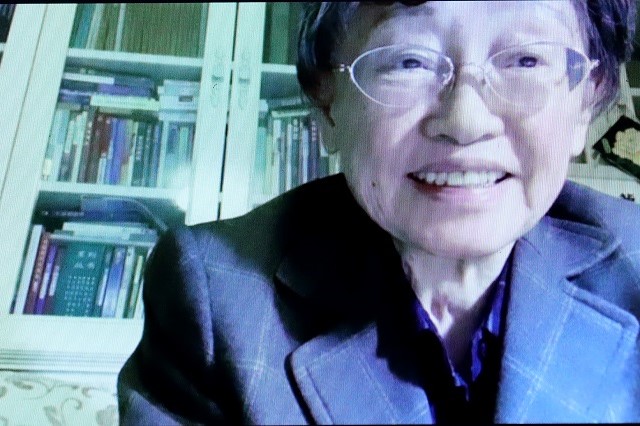
Following the opening ceremony, Wu Qidi, former Vice Minister of Education, China and Director of the ICEE, moderated the thematic symposium on “Reform and Strategic Thinking on Engineering Education.”
Zhang Dongmei, Professor of Tongji University, Marlene Kanga, former President of the WFEO, Anette Kolmos, Director of the Aalborg Center for Problem Based Learning in Science, Engineering and Sustainability at Aalborg University in Denmark, and Jiang Hui, postgraduate of the Department of Chemical Engineering at Tsinghua University, delivered their remarks.
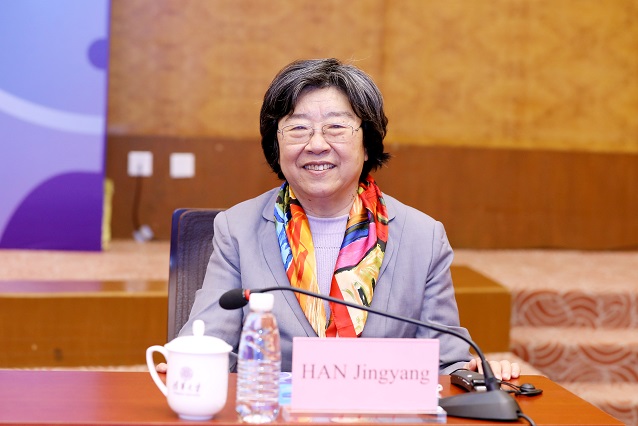
Han Jingyang moderated the first session of the thematic symposium on Engineering Education and Engineering Culture
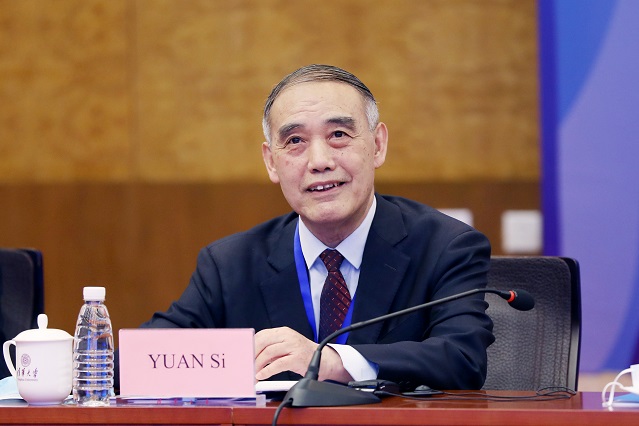
Yuan Si moderated the second session of the thematic symposium on Engineering Education and Engineering Culture
On the last day of the forum, Han Jingyang, former Vice Chairperson of the Tsinghua University Council and Vice Chairperson of Tsinghua Symposium, moderated the first session of the thematic symposium on “Engineering Education and Engineering Culture, while Yuan Si, Vice Chairperson of the Tsinghua University Council and Executive Director of the ICEE moderated the second one.
Renetta Tull, Vice Chancellor of the University of California Davis, Peggy Oti-Boateng, Director of the Division of Science Policy and Capacity Building of the UNESCO Natural Sciences Sector, Norlida Buniyamin, President-Elect of the Institution of Engineers Malaysia, Li Zhengfeng, Deputy Director of the Institute of the Belt and Road Initiative of Tsinghua University and member of Tsinghua Symposium, and Cong-Thang Huynh, Co-founder and CEO of InnoLab Asia, delivered speeches.
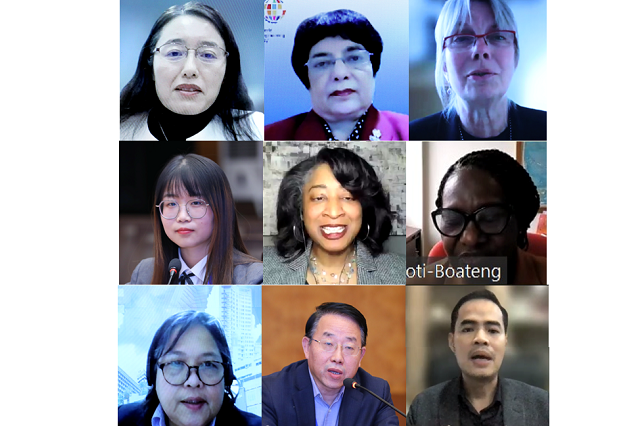
In the photos: Zhang Dongmei, Marlene Kanga, Anette Kolmos, Jiang Hui, Renetta Tull, Peggy Oti-Boateng, Norlida Buniyamin, Li Zhengfeng, and Cong-Thang Huynh
Kang Jincheng, special expert with the ICEE and former Chief of the Bureau of International Cooperation of the Chinese Academy of Engineering, Li Shuangshou, Director of the Fundamental Industry Training Center of Tsinghua University, Li Donghai from the Department of Energy and Power Engineering at Tsinghua University, and Lu Yang from the Institute of the Belt and Road Initiative of Tsinghua University, also attended the forum.
The forum attracted altogether over 1,500 scholars and experts from around the world.
(Source: UNESCO ICEE, Tsinghua Symposium)
 京公网安备 110402430053 号
京公网安备 110402430053 号